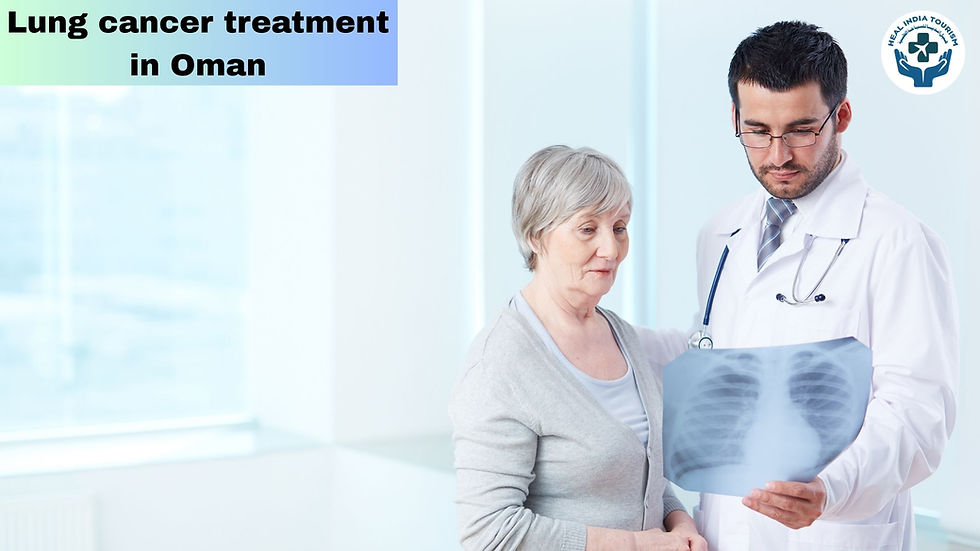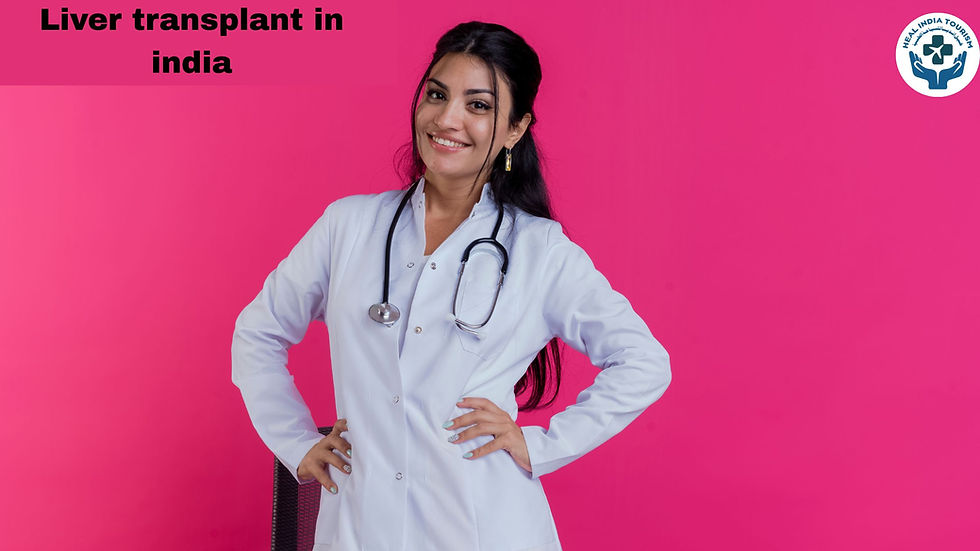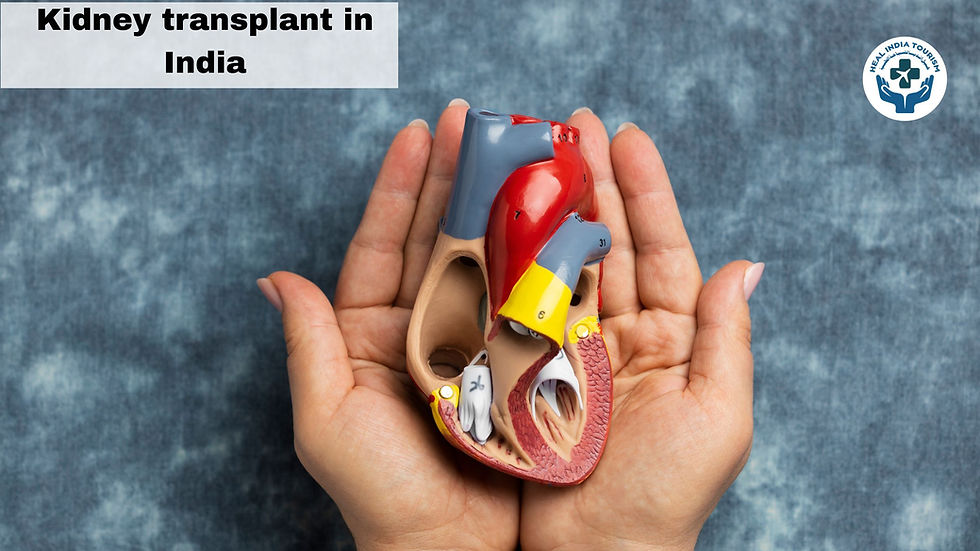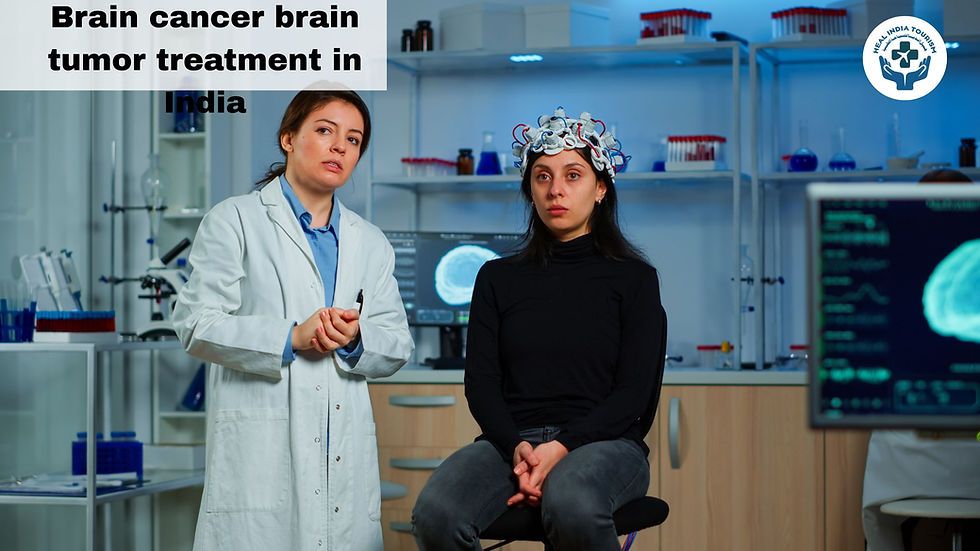Advances in Non-Small Cell Lung Cancer Care: Experiences from Omani Hospitals
- Heal India
- 9 hours ago
- 2 min read

Lung cancer is one of the leading causes of cancer-related deaths worldwide, Lung cancer treatment in Oman is no exception. Among its types, non-small cell lung cancer (NSCLC)
accounts for nearly 85% of cases. In recent years, Omani hospitals have made significant progress in the diagnosis and treatment of NSCLC, thanks to advanced technologies, multidisciplinary teams, and better access to innovative therapies.
Key Advances in NSCLC Treatment in Oman
1. Improved Early Diagnosis
With enhanced imaging technologies like PET-CT scans and endobronchial ultrasound, Omani hospitals are now able to detect lung cancer at earlier stages.
2. Minimally Invasive Surgery
Leading hospitals in Muscat and other major cities now offer Video-Assisted Thoracoscopic Surgery (VATS), which allows for faster recovery, less pain, and fewer complications compared to traditional open surgery.
3. Targeted Therapies
Molecular testing for genetic mutations such as EGFR, ALK, and ROS1 is becoming more accessible in Oman. Patients with these mutations can benefit from targeted therapies, which are often more effective and less toxic than chemotherapy.
4. Immunotherapy Breakthroughs
Omani oncologists are increasingly using immune checkpoint inhibitors, which boost the body’s own immune system to fight cancer. This has shown remarkable success in patients with advanced NSCLC.
5. Multidisciplinary Approach
Hospitals in Oman have adopted a team-based care model, bringing together oncologists, thoracic surgeons, pulmonologists, radiologists, and palliative care specialists to create personalized treatment plans for each patient.
6. Enhanced Supportive & Palliative Care
Alongside advanced treatment, hospitals emphasize quality of life. Pain management, counseling, and nutrition support are integral to care, ensuring patients receive holistic treatment throughout their journey.
What is the most common type of lung cancer in Oman?
Non-small cell lung cancer (NSCLC) is the most common type, representing around 85% of lung cancer cases.
Are advanced treatments like targeted therapy available in Oman?
Yes. Many Omani hospitals now conduct molecular testing and offer targeted therapies for eligible patients.
Is lung cancer surgery widely available in Oman?
Yes. Specialized hospitals in Muscat and other regions perform advanced surgical procedures, including minimally invasive VATS.
Can patients in Oman access immunotherapy for lung cancer?
Yes. Immunotherapy options are increasingly being used, particularly for advanced stages of NSCLC.
How does the multidisciplinary team approach help lung cancer patients?
It ensures that patients receive comprehensive and personalized care, combining expertise from different specialists.
What support is available for advanced-stage patients?
Omani hospitals provide palliative care services, including pain management, psychological counseling, and nutrition support to improve quality of life.
Conclusion
Oman’s healthcare system is steadily advancing in lung cancer care, particularly for non-small cell lung cancer. With improved diagnostics, modern therapies, and a holistic approach to treatment, patients now have greater hope for longer survival and better quality of life.





Comments